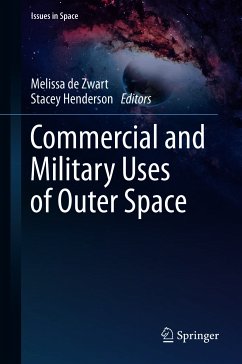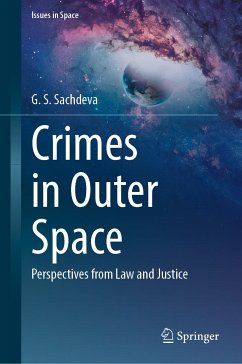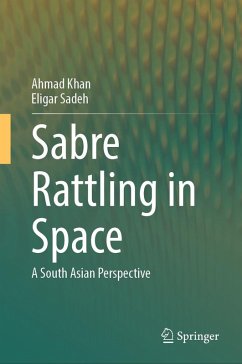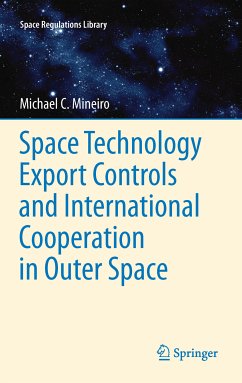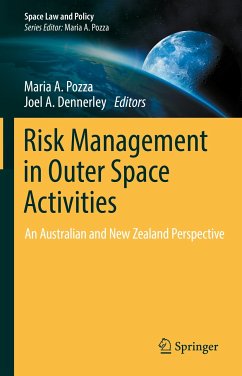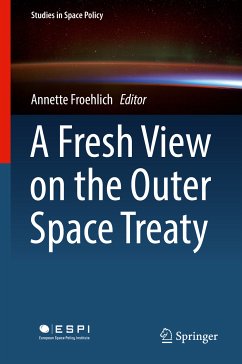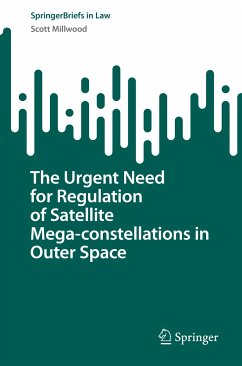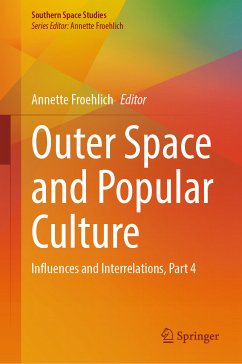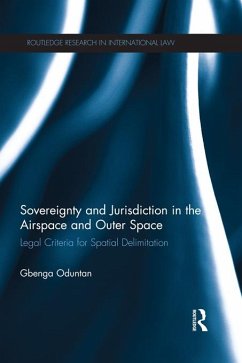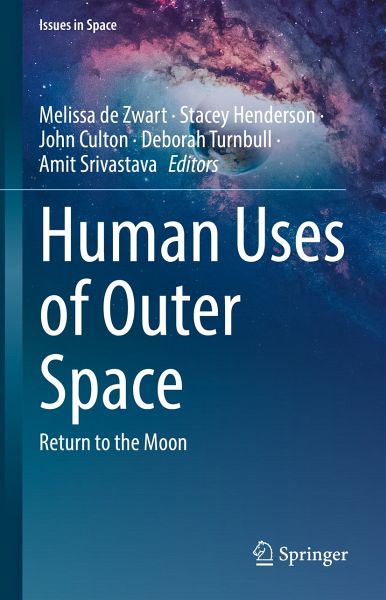
Human Uses of Outer Space (eBook, PDF)
Return to the Moon
Redaktion: De Zwart, Melissa; Srivastava, Amit; Turnbull, Deborah; Culton, John; Henderson, Stacey
Versandkostenfrei!
Sofort per Download lieferbar
120,95 €
inkl. MwSt.
Weitere Ausgaben:

PAYBACK Punkte
60 °P sammeln!
This book takes a unique interdisciplinary approach to the planned return of humans to the Moon. With the Artemis Project, the US and its partners have planned an ambitious project with the creation of the Lunar Gateway, to be followed by the landing of the first woman and next man on the Moon. This book explains that the Artemis project then forms the basis of planned sustained human missions to Mars. Russia and China have also announced their intentions to establish a permanent base on the Moon and have commenced the deployment of modules which will form part of this project. This book state...
This book takes a unique interdisciplinary approach to the planned return of humans to the Moon. With the Artemis Project, the US and its partners have planned an ambitious project with the creation of the Lunar Gateway, to be followed by the landing of the first woman and next man on the Moon. This book explains that the Artemis project then forms the basis of planned sustained human missions to Mars. Russia and China have also announced their intentions to establish a permanent base on the Moon and have commenced the deployment of modules which will form part of this project. This book states that whilst there has been a permanent human presence in Low Earth Orbit since 2000, with the continued crew rotation on the International Space Station, perhaps the most successful international collaboration of modern times, the establishment of a base on the Moon will generate new challenges for human survival and success.
The continued human presence on the space station has provided an incredible opportunity to observe and study the effect of being in space upon the human body and the human psyche. In addition, this book explores that it has provided the scope and context for a vast range of scientific experiments. Now that it has become likely that more humans will need to live and work in space for sustained periods of time, it is essential that we consider matters beyond the engineering questions of how we go to space to the broader questions of how we will live there? What will we need? What will the effects of sustained living in space be for us, emotionally, cognitively, physically and how do we need to consider the impact we will have on the environment to which we are travelling.
This book is unique in that, not only does it bring together a diverse yet complementary set of expertise, but it also consciously brings those different experts together in jointly authored chapters, mirroring the way we will have to work together as teams of diverse experts in space. It creates interwoven chapters co-written by various teams of psychologists, lawyers, engineers, regulators, policy experts, architects and cultural studies experts. This book will enable the fielding and addressing of the difficult questions that need to be considered before space habitation may be a successful and sustained mode of existence.
This book fills a gap in the area of space studies which tends to focus on narrow, discipline specific issues. It provides a thought-provoking launchpad for further work in this area and above all, stresses the needs of the human in a hostile environment.
The continued human presence on the space station has provided an incredible opportunity to observe and study the effect of being in space upon the human body and the human psyche. In addition, this book explores that it has provided the scope and context for a vast range of scientific experiments. Now that it has become likely that more humans will need to live and work in space for sustained periods of time, it is essential that we consider matters beyond the engineering questions of how we go to space to the broader questions of how we will live there? What will we need? What will the effects of sustained living in space be for us, emotionally, cognitively, physically and how do we need to consider the impact we will have on the environment to which we are travelling.
This book is unique in that, not only does it bring together a diverse yet complementary set of expertise, but it also consciously brings those different experts together in jointly authored chapters, mirroring the way we will have to work together as teams of diverse experts in space. It creates interwoven chapters co-written by various teams of psychologists, lawyers, engineers, regulators, policy experts, architects and cultural studies experts. This book will enable the fielding and addressing of the difficult questions that need to be considered before space habitation may be a successful and sustained mode of existence.
This book fills a gap in the area of space studies which tends to focus on narrow, discipline specific issues. It provides a thought-provoking launchpad for further work in this area and above all, stresses the needs of the human in a hostile environment.
Dieser Download kann aus rechtlichen Gründen nur mit Rechnungsadresse in A, B, BG, CY, CZ, D, DK, EW, E, FIN, F, GR, HR, H, IRL, I, LT, L, LR, M, NL, PL, P, R, S, SLO, SK ausgeliefert werden.



